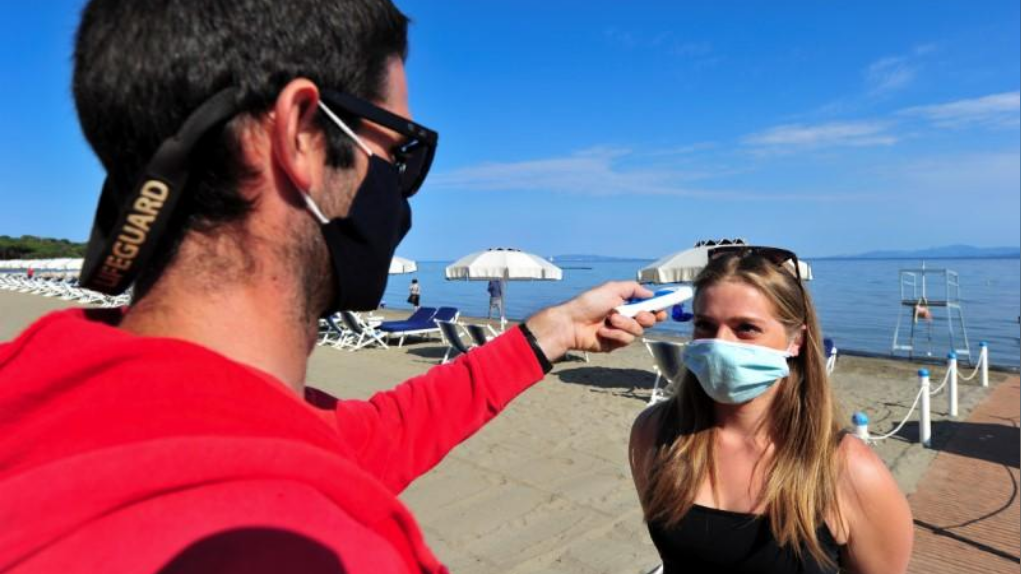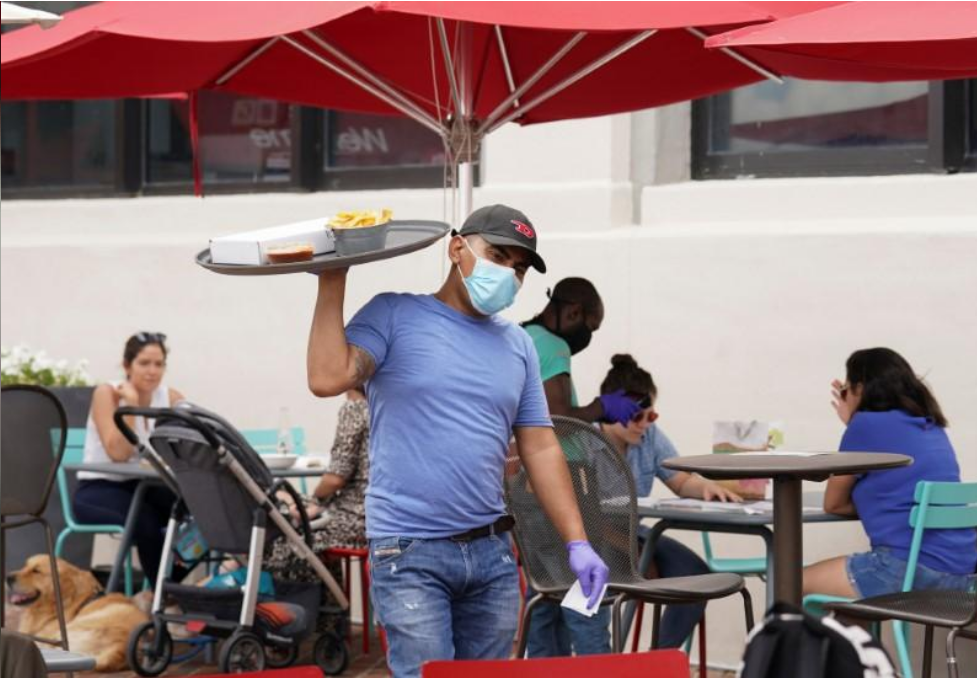04:59

As many countries slowly reopen their economy amid the coronavirus pandemic, medical experts are voicing mixed signals, with some saying the coronavirus has disappeared in their countries and others warning that returning to old habits too soon risks a second wave in the fall or winter.
Alberto Zangrillo, head of the San Raffaele Hospital in Milan in the northern region of Lombardy told RAI television Sunday that the novel coronavirus is losing its potency and has become much less lethal.
"In reality, the virus clinically no longer exists in Italy," said Zangrillo. "The swabs that were performed over the last 10 days showed a viral load in quantitative terms that was absolutely infinitesimal compared to the ones carried out a month or two months ago."
Italy has the third highest death toll in the world from COVID-19, with 33,415 people dying since February. It has the sixth highest tally of cases globally at 233,019. However new infections and fatalities have fallen steadily in May and the country is unwinding some of the most rigid lockdown restrictions introduced anywhere on the continent.
Another doctor from northern Italy told the national ANSA news agency that he was also seeing the coronavirus weaken.
"The strength the virus had two months ago is not the same strength it has today," said Matteo Bassetti, head of the infectious diseases clinic at the San Martino hospital in the city of Genoa.
"It is clear that today the COVID-19 disease is different."

A lifeguard takes the temperature of a woman at a newly reopened beach after months of closure due to an outbreak of COVID-19, at Punta Hidalgo, in Punta Ala, Italy, May 31, 2020. /Reuters
A lifeguard takes the temperature of a woman at a newly reopened beach after months of closure due to an outbreak of COVID-19, at Punta Hidalgo, in Punta Ala, Italy, May 31, 2020. /Reuters
Zangrillo said some experts were too alarmist about the prospect of a second wave of infections and politicians needed to take into account the new reality.
"We've got to get back to being a normal country," he said. "Someone has to take responsibility for terrorizing the country."
As the coronavirus reached its peak in many countries, some are racing to reopen their economy in what has become a controversial topic. Some public health experts say it's too soon to reopen businesses and resume social activities. Others argue that cities must reopen to keep the economy afloat, and protective health measures will curb coronavirus transmission.
Italian scientist Silvio Brusaferro, the president of Higher Health Institute (ISS) warned last Friday that there is a likelihood of a second coronavirus wave by autumn. The expert stated it could happen in October, the start of the season, when there are significant increases in the number of respiratory infections affecting the upper respiratory tract. He said "the disease, spread by droplets, can spread more greatly and may get confused with the other symptomatologies of a respiratory type."
As Italy is gradually reopening, the head of the institute's infectious disease department, Dr. Giovanni Rezza said the coming weeks were essentially an experiment to see how the infection curve reacts to the easing of the lockdown and production shutdown.
"We are not out of the epidemic. We are still in it. I don't want people to think there's no more risk and we go back to normal," Rezza told reporters.

An outdoor restaurant in Alexandria, Virginia as the state reopens, May 29, 2020. /Reuters
An outdoor restaurant in Alexandria, Virginia as the state reopens, May 29, 2020. /Reuters
Zhang Wenhong, a Chinese professor and director of Huashan Hospital's Department of Infectious Disease echoed concerns of a resurgence on Sunday, telling China Central Television (CCTV) that a second wave will certainly happen in the autumn and is happening now in some countries outside China.
"The COVID-19 outbreak has not ended globally and a lot of new cases are emerging every day in the United States, Brazil, Mexico and Russia. On May 30 alone, 110,000 new confirmed cases were reported worldwide, the largest number of new cases since the outbreak," Zhang said. "If the outbreak can't be well contained in the coming month, it's plain to see the global confirmed cases will surpass 10 million."
A similar warning came from the World Health Organization's special envoy David Nabarro, who said that the coronavirus "has not disappeared." He added that with the easing of lockdowns, it is necessary to prepare for the arrival of "new waves that will spread quickly."
Brusaferro, the Italian scientist, says the key to keeping the outbreak under control lies in the early isolation of people with suspected infection, more tests and the quarantine of their close contacts.
He said it will require a huge investment of resources for training medical personnel to monitor possible new cases, adding any phone app that can help trace contacts, while useful, doesn't substitute for the actions of people.
There's still much that doctors and scientists don't know about the coronavirus, but most experts agree that until we have an effective coronavirus vaccine, the only way to slow the spread of the virus is by taking precautions like social distancing, wearing face masks in public and washing hands correctly and frequently.
(With input from agencies)